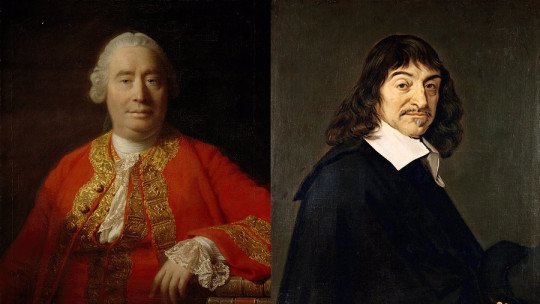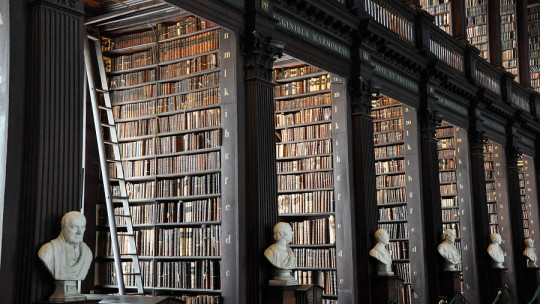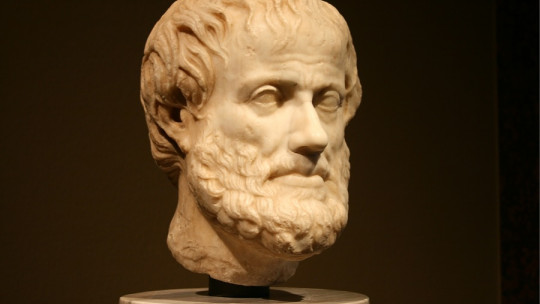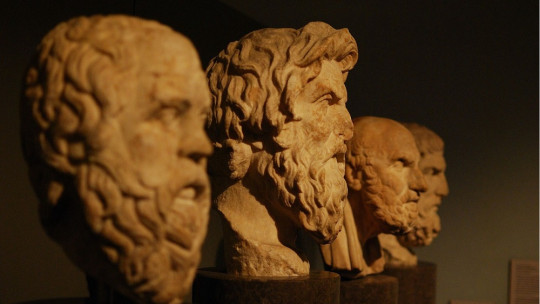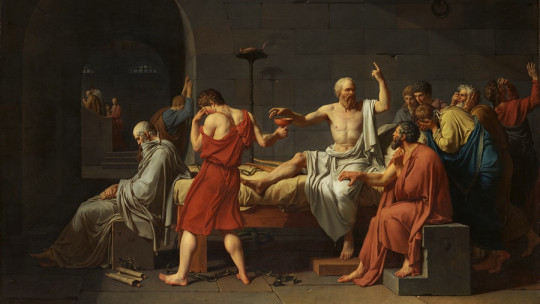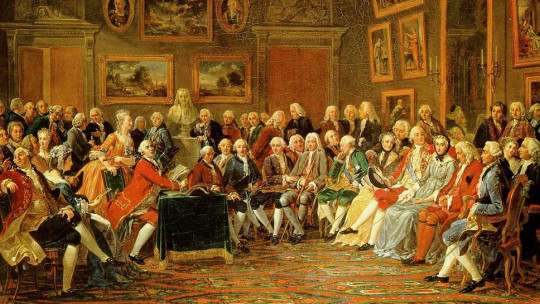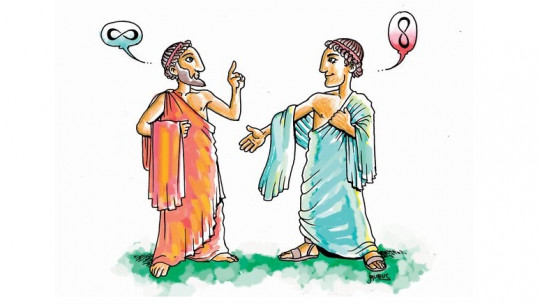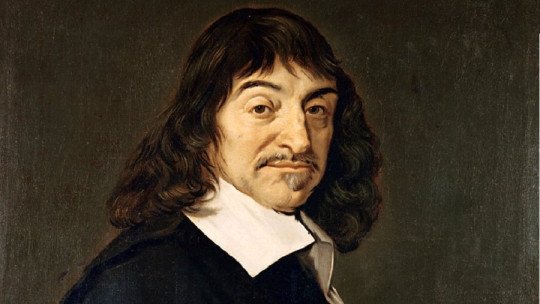
In The School of Athens by Raphael, a fresco located in the Vatican Rooms, Plato appears pointing to the sky and, next to him, his disciple Aristotle points to the ground. Broadly speaking, we can say that the Platonic gesture refers to a current of thought focused on reason and innate ideas (which would later be known as rationalism), and that of Aristotle, to empiricism or the philosophical current most related to experience of the senses.
Rationalism as a current of thought has had a long history. We can look for its roots, as we have indicated, in Plato’s precepts about innate ideas (that is, those that are not learned through experience). Throughout the Middle Ages, an eminently Platonic era, Platonic postulates were followed, ending, towards the 13th and 14th centuries, with a turn towards much more empiricist positions, championed by the texts of Aristotle, the thinkers of the circle of Oxford and Saint Thomas Aquinas.
But, without a doubt, the golden age of rationalism was the 17th century. René Descartes (1596-1650) and his Discourse of the method (1637) forever changed the philosophical trajectory, to the point that in France and the continent the rationalist current predominated, while in the English islands, and following the legacy of Oxford, the empiricism championed by David Hume (1711) grew rapidly. -1776).
What is rationalism?
Rationalism has a fairly broad meaning, which we could summarize as follows: it is a current of thought that prioritizes reason ahead of other methods of knowledge, such as auctorites (the sources “backed” by time and tradition), faith or sensory experience.
So that, Rationalist postulates maintain that only through human reason can we access the ultimate truth. In this sense, rationalists believe that men and women are sufficiently qualified to, through a process of deduction and logic, reach accurate conclusions. In fact, for the majority of rationalists this is the only way to access knowledge, since the senses deceive us (remember the Cogito ergo sum of Descartes) and, therefore, do not constitute a reliable source.
Of course, for reason to follow the proper process towards truth it is necessary to establish what that process is; Otherwise, we could fall into fallacies and contradictions that would only distance us from the truth sought. This is why the rationalists, led by René Descartes, They try to impose on human reasoning a deductive process similar to that of mathematics where there is no possibility of error.
In what era should we register the rationalist current?
We have already commented in the introduction that in Plato (c. 427-347 BC) we already found some of the aspects that would later be crucial for rationalism; among them, the existence of innate ideas. Later, his disciple Aristotle proposed an important twist to the teacher’s teachings and linked more to the experience and testimony of the senses, which would be the seed of the future scientific revolution.
By the 13th century, Aristotle’s theories had permeated Europe. The old Platonic theories are being abandoned, although they will never completely disappear. New thinkers (even religious thinkers, such as the aforementioned Saint Thomas Aquinas) are beginning to see that it is necessary to follow a deductive process (scientific, therefore) to reach correct and adequate conclusions. In the British Isles, the so-called Oxford Circle (led by Roger Bacon, Duns Scotus and William of Ockham) laid the foundations for later English empiricism, which emphasized experience as the only starting point to achieve knowledge.
However, rationalism is experiencing a new impulse on the continent, especially in France. Eminent thinkers such as Nicola Malebranche (1638-1715), Gottfried W. Leibniz (1646-1716), Baruch Spinoza (1632-1677) and Descartes himself lay the foundations of modern rationalism, as well as part of modern Western philosophy.
The context in which this continental rationalism develops is marked by the religious wars, the Protestant Reformation and the Catholic Counter-Reformation, as well as the first steps of what will be called the Scientific Revolution of the 17th century.
In this new context, currents of thought are directed towards a deep understanding of natural mechanisms, in order to control them for the benefit of human beings; It is the dawn of positivism. On the other hand, philosophers reflect on the role of the state and those who govern, a path that will result in the political and social revolutions of the end of the century.
Essential characteristics of rationalism
But what are the characteristics of rationalism? How can we recognize this current of thought that dominated the 17th century in Europe? Let’s see it below.
1. Absolute supremacy of reason
In fact, this is where its name comes from, rationalism. In it we find an absolute supremacy of reason, above other methods of knowledge, whether the “classical” methods (authority and faith) or the experience of the senses. In reality, for rationalists, reason is the only possible way for authentic and valid knowledge, since tradition and faith are not based on any method and, on the other hand, the senses deceive us. So that, According to rationalists, the human mind is perfectly capable of arriving at the truth on its own ; You just need an appropriate and effective method.
2. Existence of innate ideas
What are innate ideas? They are those that are inherent to us and we have not acquired through any empirical experience. Specifically, for Leibniz, these ideas reside in the structure of our mind, so we are able to understand them without needing to experience them. Here we see the deep connection of rationalism with what Plato, one of the great standard-bearers of innate ideas, promulgated; a concept, by the way, that marked the entire Middle Ages with the eternal question of universals.
3. Absolute rejection of sensory experience
If absolute supremacy is given to reason and the deductive capacity of the human being and, furthermore, the existence of innate ideas is admitted, it is logical to think that rationalists did not believe in the information provided by the senses. Among them, especially critical was René Descartes, who claimed that he could not be sure of anything except his thinking self (the res cogitans). It is necessary to clarify, however, that not all rationalists were so adverse to sensory experience.
4. Search for an infallible method of deduction
Human reason is enough to arrive at the truth, but only if you follow the proper method. Otherwise, the conclusions you will reach will be wrong. Thus, the rationalists, led by Descartes, tried to establish a method of deduction, inspired especially by the mathematical sciences, to provide reason with an infallible vehicle to issue absolutely accurate postulates.

